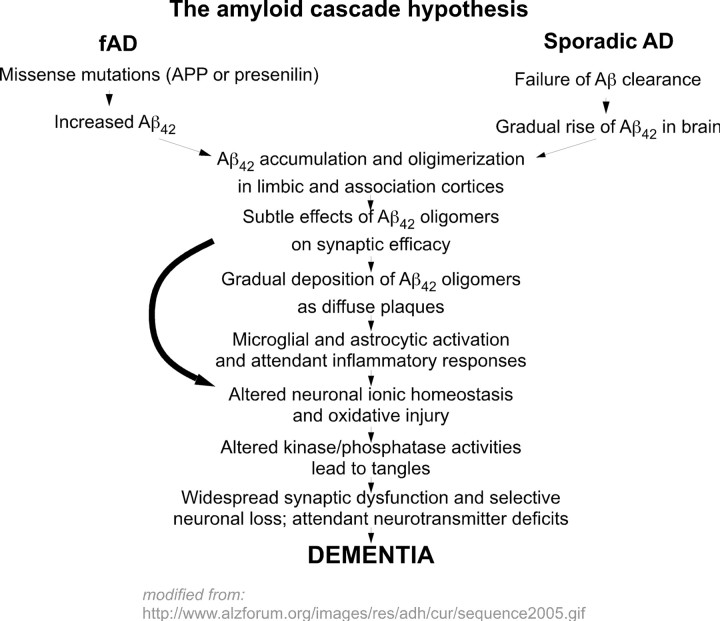Figure 1.
The amyloid cascade hypothesis of Alzheimer's disease. This hypothesis represents the classic theory of the origins of Alzheimer's disease. Both familial forms of Alzheimer's (fAD) and later-onset forms with no known etiology (sporadic AD) lead to the production of excess Aβ1-42. Once this toxic peptide begins to aggregate, a cascade of events is triggered that produces the biological and neurological symptoms of Alzheimer's disease. The diagram is modified from that found on the AlzForum web site (http://www.alzforum.org/images/res/adh/cur/sequence2005.gif).

